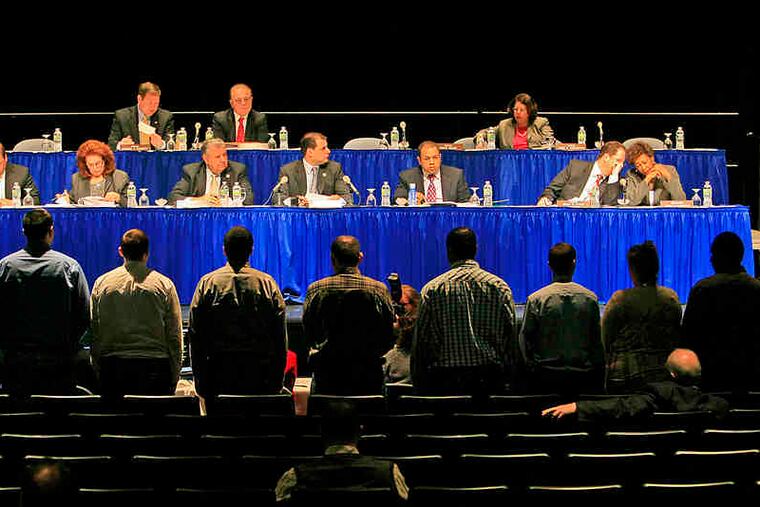New Jersey’s budget surplus and mental health needs should drive new spending | Opinion
Even just $25 million would be a start to fill New Jersey's gaps in mental health care.

Historically, New Jersey meets just about 60% of the demand for mental health and substance use treatment. As the state emerges from the pandemic, with studies showing an alarming increase in anxiety, depression, alcohol and other drug use, and other disorders, we can expect demand to continue to grow.
Behavioral healthcare providers stayed on the front lines throughout the pandemic. As they meet the diverse needs of the vulnerable populations they serve, they do so with budget deficits. For four years, community-based providers of mental health and substance use treatment have carried deficits resulting from the transition in 2017 from deficit-funded contracts to a fee-for-service (FFS) reimbursement system. As we anticipated, programs closed and others reduced capacity due to several inadequate rates that did not cover the actual costs of care, and do so less now.
» READ MORE: Booming tax collections leave NJ $10.1B surplus
Deficits have been compounded by new costs of care, including personal protective equipment, cleaning services and supplies, new digital platforms, and more. Community-based workers have starting salaries $10,000 or more lower than those at state programs and educational entities. Since January 2008, before the transition to FFS, community based programs did not receive a cost of living adjustment. As revenues dropped from the inadequate FFS rates, more was required of programs and critical components, such as outreach and engagement, deemed non-billable. Extremely qualified staff, at all levels, are underpaid for their important, life-saving and stressful work.
Behavioral health is not only among the industries struggling to hire but is also unable to pay competitive wages, and cannot even compete with retailers and fast food establishments. Ahead of the June 30 budget deadline, with New Jersey on track for a $10 billion surplus, we have an opportunity for change.
Just $25 million would fill the FFS deficits. And this is a temporary request, until the study of the adequacy of rates required by a 2017 law is finally undertaken. We need rates across the board that cover the costs of care. Those costs must include competitive wages, and then be indexed so the sector does not once again face impossible challenges in recruitment and retention.
With the surplus, New Jersey has no excuse not to finally address the funding shortfalls in community-based mental health and substance use treatment programs.
» READ MORE: How to make a mental health plan to help you process the pandemic | Expert Opinion
In addition to the temporary $25 million FFS supplemental, the following should be funded to strengthen the foundations of the system:
School Based Youth Services Program: Expansion of this exceptional program, around since 1988, is critical for meeting the needs of New Jersey’s school children as they return to classrooms this fall. We request an immediate doubling of the current funding of $15 million. The funding supports programs in more than 90 schools, offering not only individual and family counseling services, but also prevention, peer services, and a wide array of other supports. SBYSPs have not had increases in their contracts for decades, causing them to cut staffing and leaving them unable to fill vacant positions at the salaries they are able to offer. We recommend that $15 million in the FY2022 budget be available for both expansion and to existing programs, with plans to continue to expand this program until all schools are served by SBYSPs.
Screening Center Outreach Services: In January 2020, New Jersey passed a law establishing a process for Screening Center programs to apply to the Division of Mental Health and Addiction Services for grants to expand their mobile response, satellite offices, or other approaches to community outreach—yet it allocated no funding. Our organization is recommending a minimum of $1.5 million for this program.
Early Intervention Supportive Services: EISS is established in 11 of New Jersey’s counties. These programs offer mental health services in a living room model and are similar to urgent care centers for physical ailments. They should be expanded to all counties and strengthened to form a core component of the 9-8-8 crisis response system that is required by federal law by July 2022. The FY2022 budget should allocate $15 million for both expansion and to provide more funding for existing programs.
It is a moral and ethical imperative that spending be directed to New Jerseyans’ pressing mental health and substance use treatment needs. Policymakers must ask themselves, “If not now, when?”
Debra L. Wentz is President and CEO of the New Jersey Association of Mental Health and Addiction Agencies.